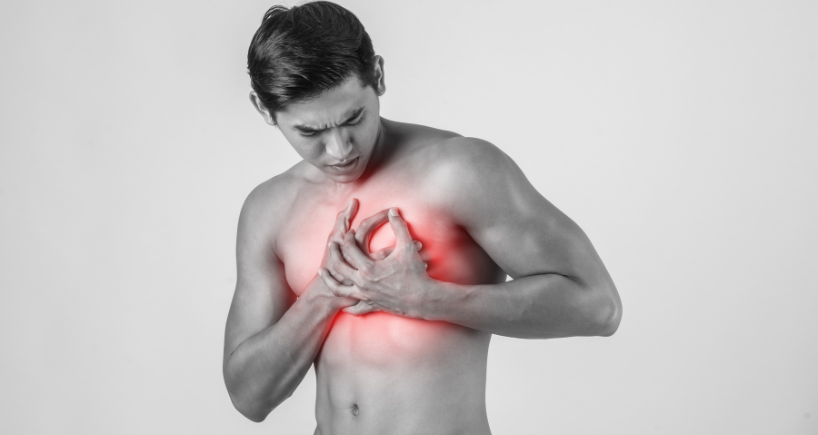
What is Cardiomyopathy? Understanding This Heart Muscle Disease
Cardiomyopathy is the term used to describe any condition that affects your heart muscles. It impairs the heart’s capacity to pump blood efficiently. The cardiac beat can also be disrupted in certain conditions. Sometimes, it leads to arrhythmias. However, even though it is dangerous, it can be treated.
Cardiomyopathy
It is a condition that affects your myocardium, which is a heart muscle. It makes your heart stiff, enlarged, and thick and causes scar tissue. As a result, the heart cannot pump blood effectively and sufficiently and supply it to all body parts. The symptoms include fatigue, heart palpitations, chest pain, shortness of breath, irregular heartbeats, swelling of legs and ankles, shoulder pain, syncope, bloating of stomach, cough while lying down, trouble lying flat to sleep, and dizziness.
What are the types of cardiomyopathy?
There are mainly four types of cardiomyopathy:
- Hypertrophic cardiomyopathy: It is a complex type of heart disease affecting your heart muscles. It causes thickening of ventricles and lower heart chambers, stiffness of ventricles, cellular changes and mitral valve changes. It affects your body by thickening the myocardium, which commonly occurs at the septum, a muscular wall separating the heart’s left and right sides. The thickened septum causes the narrowing of blood vessels and reduces the blood flow from the left ventricle to the aorta. This makes it difficult for the heart to pump blood and supply it to all regions. The symptoms of this condition include chest pain, shortness of breath, and dizziness.
- Dilated cardiomyopathy: It is a type which is caused when the left ventricle of the heart muscle gets enlarged. It results in the thinning of tissues, causing the heart to pump with less force. As a result, more blood remains in the heart after each pump, making it difficult to supply blood to all body parts.
- Restrictive cardiomyopathy: It is a type where the muscle tissue in the lower chambers of the heart becomes stiff, and ventricles cannot store or fill blood, leading to reduced blood flow.
- Arrhythmogenic right ventricular dysplasia: It is a rare type where the fibrous tissue or fat replaces a damaged heart muscle in the right ventricle. As a result, the right ventricle stretches out and becomes thin, causing it to lose its ability to pump blood.
The other types include:
- Broken heart syndrome: It is an acute condition where the heart muscle weakens and disrupts blood supply and ability to pump, harming the whole body.
- Chemotherapy-induced cardiomyopathy: It is a type which is caused due to cancer treatments or medications. It is developed after cancer treatments. Cardiotoxicity reduces the ability of the heart to pump blood.
- Alcohol-induced cardiomyopathy: It is a condition that is caused by alcohol consumption that damages the heart.
- Left-ventricular non-compaction cardiomyopathy: It is a type where the lower left heart ventricle doesn’t develop, and instead of being firm and smooth, it becomes spongy and thick.
- Peripartum cardiomyopathy: It is a type which is seen in the last months of pregnancy. It weakens the heart muscles and lowers its ability to function. It damages one of the heart chambers.
- Ischemic cardiomyopathy: It is a type where the heart muscle cannot pump blood due to damaged muscles from lack of blood supply. The reduced supply of blood leads to the enlarging of the left ventricles.
Treatment
Cardiomyopathy cannot be permanently cured, but there are several ways to manage the symptoms and slow down the disease’s progression. Some of the treatments include:
Medications: Based on the causes, types, and symptoms, healthcare professionals prescribe certain medications to reduce the risk of this condition and improve your blood flow. They include antihypertensives, anticoagulants, corticosteroids, antiarrhythmics, antihyperlipidemic drugs, and aldosterone antagonists.
Lifestyle management: By managing and changing your lifestyle habits, you can reduce the risks. Some adjustments include:
- Eating healthy food that involves fruits, vegetables, proteins, fibres, and vitamins
- Doing regular exercises
- Reducing stress level
- Getting enough sleep and rest
- Avoiding alcohol, smoking, and tobacco
Surgical implanting devices: These are the devices implanted into your body that treat certain symptoms of cardiomyopathy. It treats irregular heartbeats, increases blood flow, and prevents the narrowing of blood vessels. Some of the devices are,
- Pacemakers
- Implantable cardioverter defibrillators
- Left ventricular assist device
- Cardiac resynchronisation device
Surgery: For certain conditions, surgeries are carried out, like bypass surgery, valve surgery, septal myectomy, and heart transplant. All these procedures involve removing heart tissues affected or damaged to improve blood flow through the heart.
Conclusion
To conclude, cardiomyopathy is a disorder of your heart muscles that affects your body by decreasing normal blood flow and causing a variety of symptoms. Despite the fact that there is no permanent cure for this illness, there are ways to control its symptoms. Helping your heart perform well while preventing more damage and loss of function is the ultimate aim of the treatment.



















